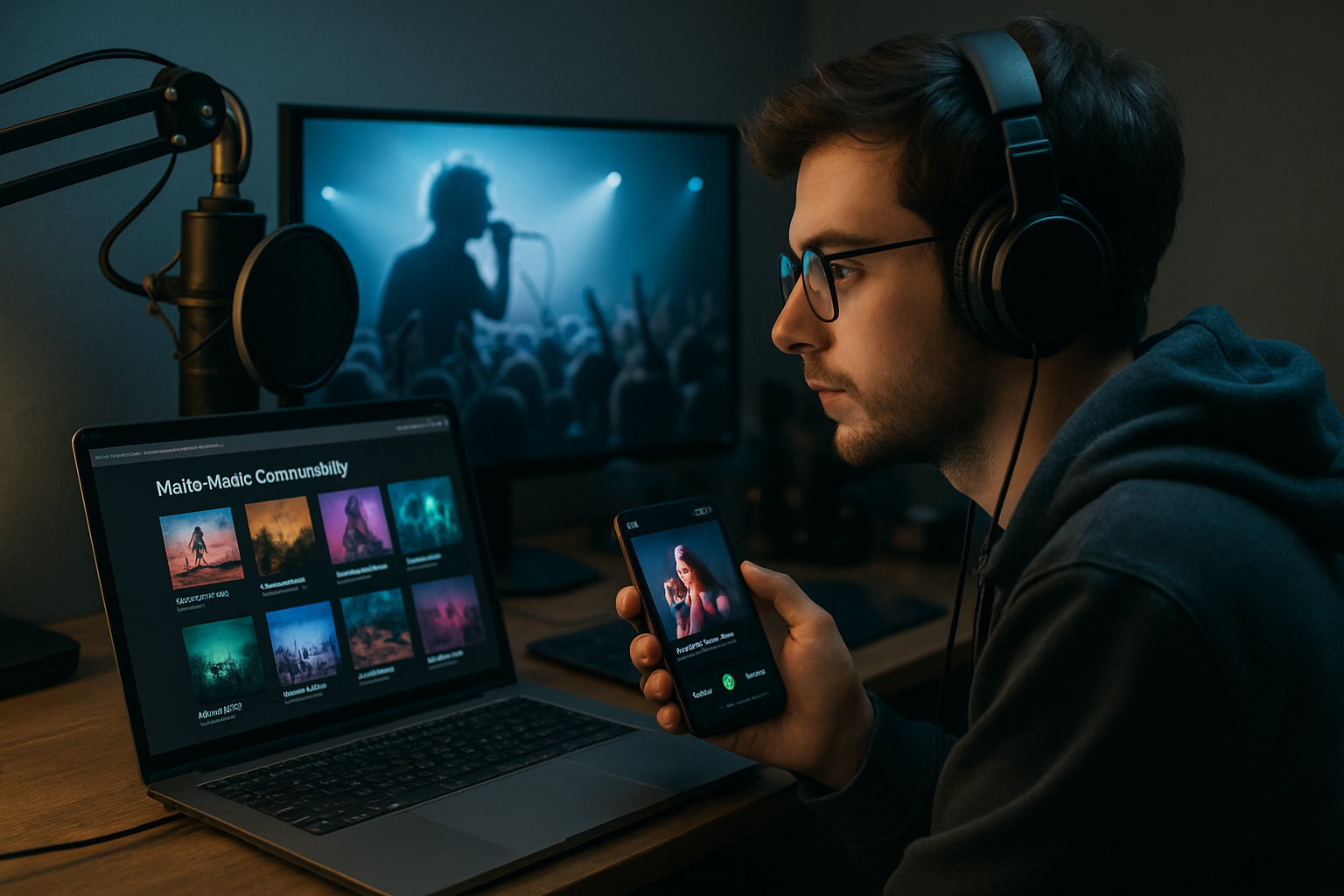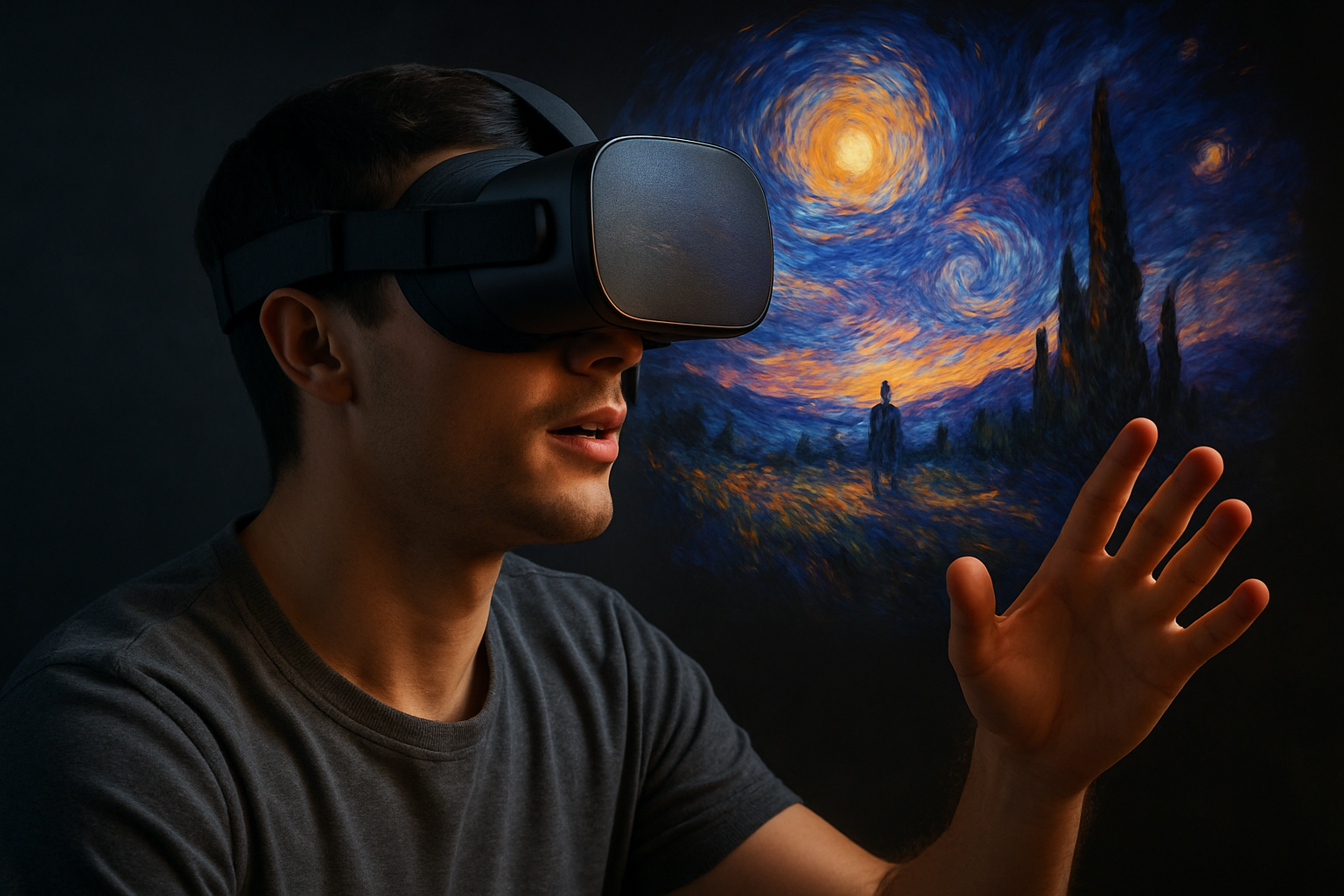Sonic Tribalism: The Rise of Hyper-Niche Music Communities
In an era of boundless digital connectivity, a curious phenomenon is reshaping our musical landscape. Hyper-niche music communities are emerging, uniting fans of ultra-specific subgenres across the globe. These sonic tribes are redefining how we discover, share, and experience music in the digital age. Read below to explore the fascinating world of musical micro-cultures and their impact on society.

The Birth of Micro-Genres
The fragmentation of music into ever-more specific categories is not a new phenomenon. However, the digital age has accelerated this process exponentially. Genres like Vaporwave, Witch House, and Seapunk have emerged, each with its own distinct sound, aesthetic, and cultural significance. These micro-genres often blend multiple influences, creating unique sonic landscapes that appeal to very specific tastes.
Virtual Gathering Spaces
Online platforms have become the new concert halls and record stores for these niche communities. Reddit subreddits, Discord servers, and specialized forums serve as virtual gathering spaces where fans can share tracks, discuss artists, and connect with like-minded individuals. These digital spaces allow for a level of community building that was previously impossible for such specialized interests.
The Algorithm as Curator
Streaming platforms’ recommendation algorithms play a crucial role in the formation and sustenance of these hyper-niche communities. By analyzing listening habits and preferences, these algorithms can introduce users to obscure tracks and artists that align perfectly with their tastes. This personalized curation has made it easier than ever for listeners to dive deep into specific subgenres and discover new favorites.
Identity and Belonging in the Digital Age
For many, these hyper-niche music communities provide a sense of identity and belonging in an increasingly fragmented world. Fans of obscure subgenres often feel a strong connection to others who share their musical interests, forming tight-knit online communities. These groups can become important sources of social support and validation, particularly for individuals who may feel out of place in mainstream culture.
The Impact on Artists and the Music Industry
The rise of hyper-niche music communities has significant implications for artists and the music industry as a whole. Independent artists can now find sustainable audiences for highly specialized sounds, bypassing traditional gatekeepers. This democratization of music production and distribution has led to an explosion of creativity and diversity in the musical landscape.
Challenges and Criticisms
While the proliferation of micro-genres and niche communities has many positive aspects, it also faces criticism. Some argue that the hyper-specialization of music can lead to echo chambers and musical tribalism, limiting exposure to diverse sounds and perspectives. Additionally, the overwhelming abundance of choice can sometimes make it difficult for listeners to navigate the vast sea of available music.
The Future of Musical Communities
As technology continues to evolve, so too will the nature of these hyper-niche music communities. Virtual and augmented reality technologies may soon allow for more immersive shared experiences, bridging the gap between online and offline music consumption. The boundaries between genres may become even more fluid, leading to new hybrid sounds and communities.
Societal Implications
The phenomenon of sonic tribalism reflects broader trends in society, such as the increasing personalization of culture and the fragmentation of shared experiences. It raises important questions about the balance between individualism and collective identity in the digital age. As these hyper-niche communities continue to grow and evolve, they will undoubtedly play a significant role in shaping the future of music consumption and cultural identity.
In conclusion, the rise of hyper-niche music communities represents a fascinating shift in how we engage with music and form connections in the digital age. These sonic tribes offer new avenues for self-expression, community building, and musical discovery. As we navigate this new landscape, it’s clear that the way we experience and share music will continue to evolve, reflecting the changing dynamics of our increasingly connected yet diversified world.





